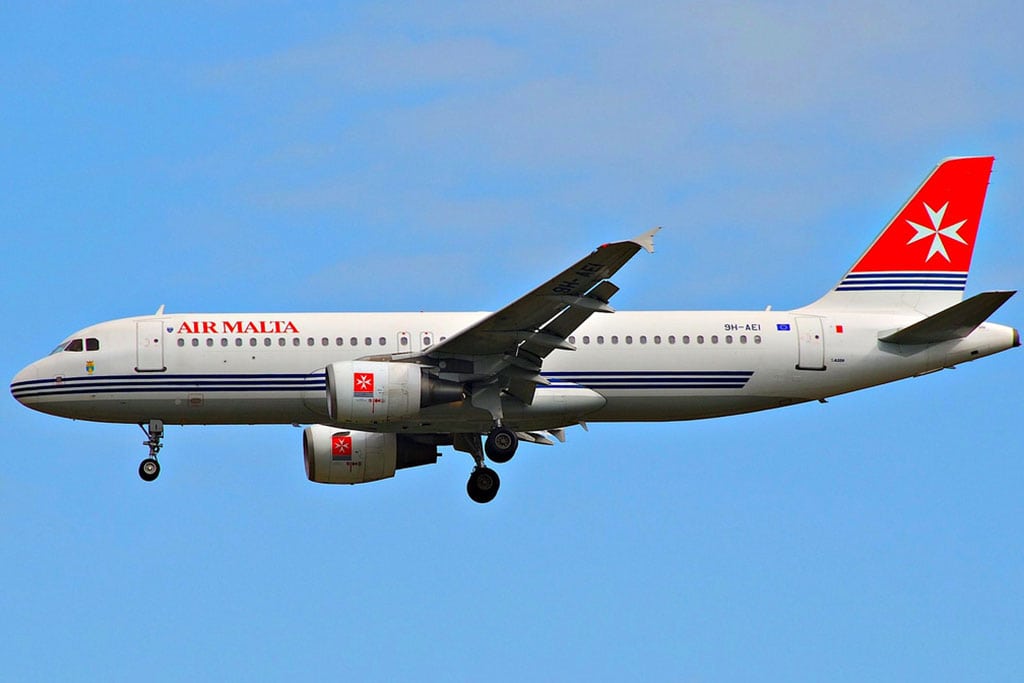Skift Take
Europe is fond of its national airlines, but carrying the ongoing burden of loss is out of the question. There's bound to be more market consolidation. Consolidating without destroying the unique cultural brand is an interesting approach to this dilemma.
Former airline CEO, Peter Davies, who was most recently at the helm of Air Malta, tells us that a long-term solution to the problems faced by Europe’s small flagship carriers could be a hotel industry model.
Flagship carriers are becoming an endangered species around the aviation world, but the problem is prominent in Europe where national airlines clash with the growing influence of low-cost carriers and Gulf carriers, who are eating their lunch. These relative new-comers are squeezing traditional European carriers from both sides, taking a significant chunk short-haul feeder routes and long-haul, high-profit premium routes.
Smaller flagships, as Davis sees it, have a role to play in the market as destination brands. These airlines can promote local tourism by capitalizing on the unique cultural experiences of their countries. When these airlines extend their unique culture to the journey, he suggests, they help define the national brand. “When you get onboard an airline that is a national carrier, it has to have the personality of that country,” Davies says.
But running a destination brand alone is not an effective survival strategy for small flagships, Davis tells us. These national airlines face challenges in economies of scale, which make competing with larger airlines difficult. “You are never going to get down to the economies of scale the larger airlines have. Their cost per available seat kilometer is lower,” he says. By bringing together those smaller airline brands under a central management, Davies believes, just as hotel management companies do with the various brands of hotels they manage, they can achieve the necessary economies of scale to be profitable.
He proposes a “hotel management style, where airlines have maintain their brand but the whole back office is managed by management company.” The hotel management company would be invisible to passengers. The airline’s customers would experience the local airline brand, not a chain identity. But the national carriers would benefit from the same cost advantages of their larger competitors.
“Your back office costs, your revenue counting, maintenance, aircraft purchasing, insurance—all these expensive ticket items would be transferred [to the management company] which yields economies of scale,” Davies says. “That company takes on a percentage of the fixed-costs basis of these smaller flagship airlines, which would make a significant difference in terms of profitability. The key is to make sure you maintain the brand. I do believe fervently in the brand, particularly for a destination airline.”
Effective brand management would deliver a unique tourism experience, but it requires greater investment in marketing, design, passenger experience features, recruiting and training of dedicated staff. Davis recognizes this would might mean smaller carriers have to charge a higher fare than low-cost carriers flying point-to-point to those popular tourist destinations. But he believes the fare differential could be small, and justified by a better travel experience with a superior product.
“You need to maintain that brand,” he says, “and there’s a certain cost attached to that. But you can reduce your costs by further consolidation at your fixed-costs basis with the hotel management model. That model may give a route-map for many small airlines to make the profitability which satisfies the European Union in terms of state-aid, and allows those companies a level of profitability which generates sufficient investment.”
Davies strongly believes this strategy must be based on good business management and a competitive mindset. These airlines, and the management company in the background, must be run effectively, without protectionist aims or the sour grapes some larger European carriers express over the growth of LCCs and influence of gulf carriers.
“There’s no such thing as a level playing field in this business and never will be,” he tells us. “People need to grow up, manage their own businesses and get on with it.”
Davies is developing this model with a group of associates with industry and brand-management experience. He intends his White Knight Aviation, Ltd. consulting group to liaise with the European commission, the small flagship carriers, their governments and tourist boards to promote this hotel management model.
The Daily Newsletter
Our daily coverage of the global travel industry. Written by editors and analysts from across Skift’s brands.
Have a confidential tip for Skift? Get in touch
Tags: airlines, hospitality
Photo credit: An Air Malta plane. Aero Icarus / Flickr
